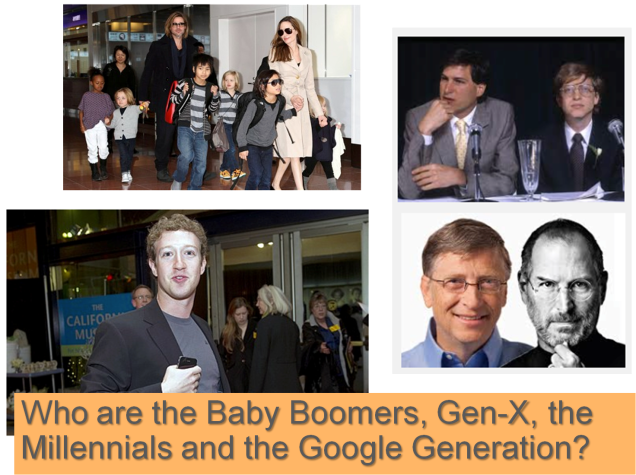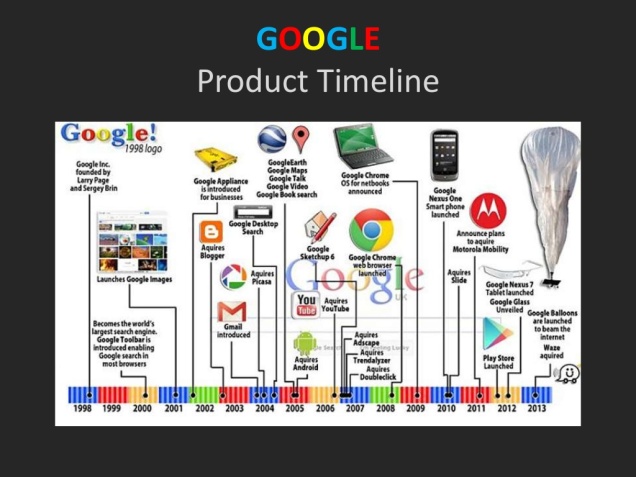Who are the Millennials – Part 2
Introducing the Google Generation
by Maria Pineda 21 March 2017
Continuing the discussion on the Millennials, there is a need to look at the profile of the pre-Millennials and the post-Millennial.
Those who were born around World War II until 1959 are considered the Baby Boomers. The term baby boomer was used in America to refer to a stage of recovery after the war and most people were optimistic in their views of raising a family. It was a period when most individuals decide to marry earlier at the same that the economy was becoming stronger and stable.
So those who were born around 1940s-1959 are considered Baby Boomers. From 1960-1979, they are considered as the Generation X. Those who were born from 1980-1999 are the Millennials and some call it the Generation Y. But as I mention in my earlier article, I prefer to call them millennials.

IMO, the millennials and the post-millennials are very different from the earlier generations because they grew up having immensely influenced by computing and technologies in their day-to-day routine and communications, in their schooling, in their personal interests, in their jobs or profession. Technology is at every fabric of their lives, online or offline.
The decade of 2000 until 2010 may be considered as the tipping point of the internet.This was when Web 2.0 was introduced by Tim O’Reilly. Web 2.0 was intended to turn around the way of doing business on the internet. The turnaround went beyond commerce and made an impact to all types of industries. It was a rebirth for the internet or most comfortably labeled now as the web.
The decade also witnessed the birth of Google, Youtube, Twitter, Wikipedia, and Facebook.
Hence, post-Millennial generation, some call it Generation Z or Post-Millennials, I label them as the Google Generation or the G-generation, those individuals who were born from 2000 and beyond or maybe until 2019. They were born in the same decade when Web 2.0 became a tipping point. 
Image source: Supreet Jossan Slideshare, https://www.slideshare.net/supreetjossan/strategic-management-google-case
So why not call them the “Web generation”? Can be.. but I prefer to call them the Google Generation or the G-Generation. It was in 2000 when Google became the world’s largest search engine and it is still continuously growing. Google links every web application and every piece of information available that Google has become the postmodern demigod and everyone depends on it.
As Google has become globally needed, let me profile the G-Generation.
These individuals grew up with the web at their fingertips. At the age of 3, they can operate the computer or the laptop by being accustomed to the icons of the applications. The icon-based interface works well with them.
At the age of 4 or 5, even before they can read well, they can access online games. If “friending” was advanced by the millennials, “gaming” came forth to a web of progression and evolution. Every G-gen would have an affiliation to two or three games at a given stage of her or his life. This situation warranted to advance the computer gaming industry.
At the age of 8, they can search game cheat codes. This means their intelligent search capabilities are more advanced than the millennials.
At the same time, their exposure to all kinds of digital media and technologies and new facets of multimedia make them multi-sensory skilled. If the appropriate schooling methods are provided, they do not have issues dealing with multi-function tasks in the future.
The G-Gen does not require a learning phase to use online learning resources or a learning management system. They grew up with a web-connected environment wherein the resources are organized and prepared and they can talk ubiquitously to their peers, teachers or mentors.
This is a partial profiling and is based on my observations as an academic of being exposed to university students for many years.